I am just starting with OpenTelemetry and have created two (micro)services for this purpose: Standard and GeoMap.
The end-user sends requests to the Standard service, who in turn sends requests to GeoMap to fetch informations before returning the result to the end-user. I am using gRPC for all communications.
I have instrumented my functions as such:
For Standard:
type standardService struct {
pb.UnimplementedStandardServiceServer
}
func (s *standardService) GetStandard(ctx context.Context, in *pb.GetStandardRequest) (*pb.GetStandardResponse, error) {
conn, _:= createClient(ctx, geomapSvcAddr)
defer conn1.Close()
newCtx, span1 := otel.Tracer(name).Start(ctx, "GetStandard")
defer span1.End()
countryInfo, err := pb.NewGeoMapServiceClient(conn).GetCountry(newCtx,
&pb.GetCountryRequest{
Name: in.Name,
})
//...
return &pb.GetStandardResponse{
Standard: standard,
}, nil
}
func createClient(ctx context.Context, svcAddr string) (*grpc.ClientConn, error) {
return grpc.DialContext(ctx, svcAddr,
grpc.WithTransportCredentials(insecure.NewCredentials()),
grpc.WithUnaryInterceptor(otelgrpc.UnaryClientInterceptor()),
)
}
For GeoMap:
type geomapService struct {
pb.UnimplementedGeoMapServiceServer
}
func (s *geomapService) GetCountry(ctx context.Context, in *pb.GetCountryRequest) (*pb.GetCountryResponse, error) {
_, span := otel.Tracer(name).Start(ctx, "GetCountry")
defer span.End()
span.SetAttributes(attribute.String("country", in.Name))
span.AddEvent("Retrieving country info")
//...
span.AddEvent("Country info retrieved")
return &pb.GetCountryResponse{
Country: &country,
}, nil
}
Both services are configured to send their spans to a Jaeger Backend and share an almost identic main function (small differences are noted in comments):
const (
name = "mapedia"
service = "geomap" //or standard
environment = "production"
id = 1
)
func tracerProvider(url string) (*tracesdk.TracerProvider, error) {
// Create the Jaeger exporter
exp, err := jaeger.New(jaeger.WithCollectorEndpoint(jaeger.WithEndpoint(url)))
if err != nil {
return nil, err
}
tp := tracesdk.NewTracerProvider(
// Always be sure to batch in production.
tracesdk.WithBatcher(exp),
// Record information about this application in a Resource.
tracesdk.WithResource(resource.NewWithAttributes(
semconv.SchemaURL,
semconv.ServiceName(service),
attribute.String("environment", environment),
attribute.Int64("ID", id),
)),
)
return tp, nil
}
func main() {
tp, err := tracerProvider("http://localhost:14268/api/traces")
if err != nil {
log.Fatal(err)
}
defer func() {
if err := tp.Shutdown(context.Background()); err != nil {
log.Fatal(err)
}
}()
otel.SetTracerProvider(tp)
listener, err := net.Listen("tcp", ":"+port)
if err != nil {
panic(err)
}
s := grpc.NewServer(
grpc.UnaryInterceptor(otelgrpc.UnaryServerInterceptor()),
)
reflection.Register(s)
pb.RegisterGeoMapServiceServer(s, &geomapService{}) // or pb.RegisterStandardServiceServer(s, &standardService{})
if err := s.Serve(listener); err != nil {
log.Fatalf("Failed to serve: %v", err)
}
}
When I look at a trace generated by an end-user request to the Standard Service, I can see that it is, as expected, making calls to its GeoMap service:
However, I don't see any of the attributes or the events I have added to the child span (I added an attribute and 2 events when instrumenting the GetCountry function of GeoMap).
What I notice however is that these attributes are available in another separate trace (available under the "geomap" service in Jaeger) with a span ID totally unrelated to the child spans in the Standard service:
Now what I would have expected is to have a single trace, and to see all attributes/events related to GeoMap in the child span within the Standard span. How to get to the expected result from here?

